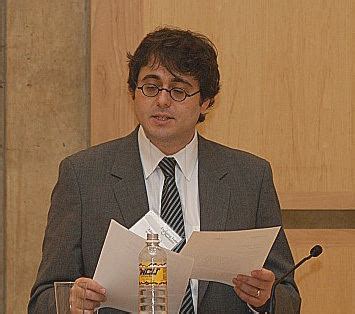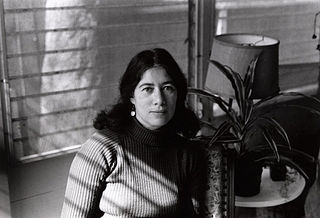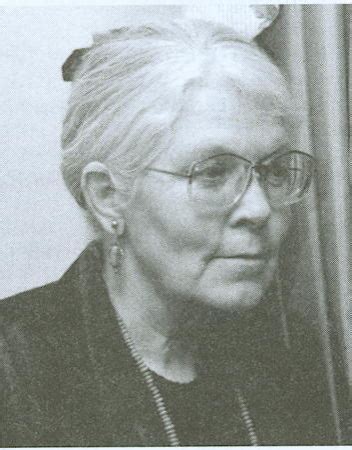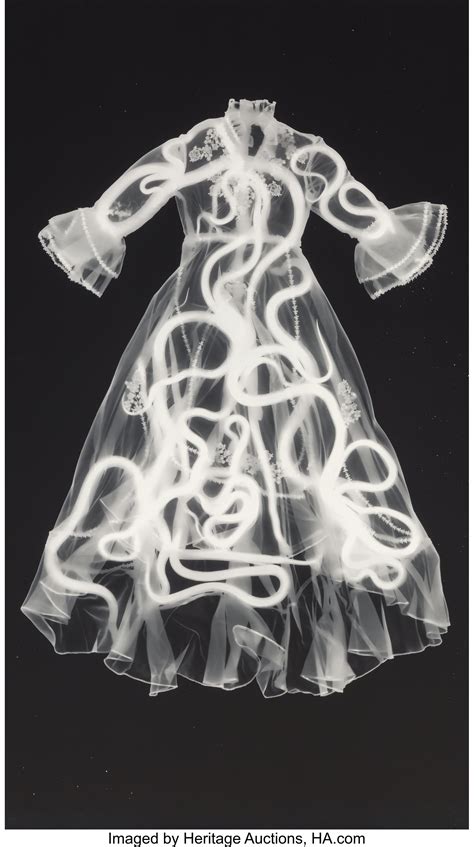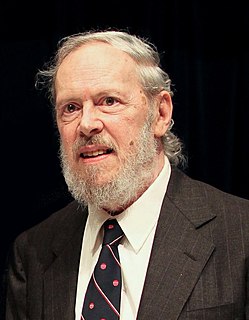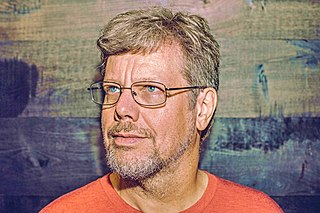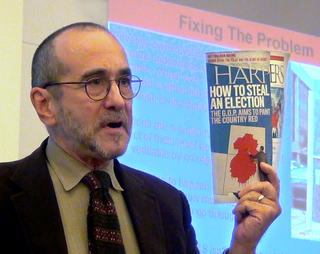Top 106 Syntax Quotes & Sayings - Page 2
Explore popular Syntax quotes.
Last updated on December 22, 2024.
It is always just telling a story, regardless of the age of the reader. Except, if I'm writing something for kids, I know there has to be hope. I don't necessarily feel that responsibility for adults, but I emphatically feel it for children. That's the only difference. There's no syntax difference. There's no semantics difference. There's no thematic difference.
In the 1970s, for example, I found myself learning to relish the poetry of Andrew Marvell and Sir Thomas Wyatt, and getting a handle on poetry of plainer speech than I had dwelt with heretofore. Which led me into a new appreciation of middle [William Butler ] Yeats, of the short three-beat line and forward-driving syntax, and that paid in, in turn, to a poem like Casualty in Field Work. The traffic, however, was usually the other way. My teaching was animated by what I was reading and being excited by as a poet.
To my mind this makes psychedelics central to any political reconstruction, because these are the only force in nature that actually dissolve linguistics structures; lets the mechanics of syntax to be visible, allows the possibility for rapid introduction and spread of new concepts; gives permission for new ways of seeing; and this is what we have to do, we have to change our minds.
If you want to be a fiction writer, you need to start reading like a fiction writer. To do so, you need to learn about craft so that the next time you pick up a contemporary short story, you're reading it not as an abstraction floating in formaldehyde, existing simply for the theorist's dull scalpel to saw on, but as a concrete thing constructed out of words and shaped by syntax, brought to life by a writer who made several thousand choices, some large, some small, before letting that imperfect beauty, the story, walk on its own two feet.
The notion of the writer as a kind of sociological sample of a community is ludicrous. Even worse is the notion that writers should provide an example of how to live. Virginia Woolf ended her life by putting a rock in her sweater one day and walking into a lake. She is not a model of how I want to live my life. On the other hand, the bravery of her syntax, of her sentences, written during her deepest depression, is a kind of example for me. But I do not want to become Virginia Woolf. That is not why I read her.
What I had thought were signs of a broken educational system - the seemingly random placement of commas, the spastic syntax, the obnoxious overuse of quotation marks, the goofy misspelling of 'Jouralism' - were actually signs of the New Instantaneousness. 'Instant Jouralists' cannot be concerned with punctuation and grammar and spelling. That stuff just 'slows you down.' To be an 'Instant Jouralist,' you have to write as if you were being pursued by a cheetah across the Serengeti.
Saw you walking barefoot taking a long look at the new moon's eyelid later spread sleep-fallen, naked in your dark hair asleep but not oblivious of the unslept unsleeping elsewhere Tonight I think no poetry will serve Syntax of rendition: verb pilots the plane adverb modifies action verb force-feeds noun submerges the subject noun is choking verb disgraced goes on doing now diagram the sentence
If Henry James were still with us, he'd not only approve of Paris, He Said, he could have written it himself, though without his serpentine syntax. It's a delicious treat, studded with wise and beautifully observed detail, that places side by side those perpetually fascinating antagonists, the eager, casual American and the meticulous, pleasure-driven French. Christine Sneed knows everyone's intimate secrets and her book is lively, amusing, and, ultimately, kind to pretty much all of them.
Long looking at paintings is equivalent to being dropped into a foreign city, where gradually, out of desire and despair, a few key words, then a little syntax make a clearing in the silence. Art... is a foreign city, and we deceive ourselves when we think it familiar... We have to recognize that the language of art, all art, is not our mother-tongue.
Would you convey my compliments to the purist who reads your proofs and tell him or her that I write in a sort of broken-down patois which is something like the way a Swiss waiter talks, and that when I split an infinitive, God damn it, I split it so it will stay split, and when I interrupt the velvety smoothness of my more or less literate syntax with a few sudden words of bar-room vernacular, that is done with the eyes wide open and the mind relaxed but attentive.
One of the reasons I love language is that concerning semiotics, language is an arbitrary sign system, which means the signs within it are free-floating, but we put them in a certain order to get them to have meaning for us. If we left them alone, they'd be like water, like the ocean. It would be just this vast field of free-floating matter or signs, so in this way, I think language and water have much in common. It's only us bringing grammar and syntax and diction and the human need for meaning that orders language, hierarchizes it.
This is what happens when the discourse of publishing, defined and driven by spoken and written language, is talked about in exactly the same vocabulary and syntax as any widgetmaking industry. Books are reformulated as 'product' - like screwdrivers or flea-bombs or soap - and the majority of writers are perceived as typists with bad attitudes.
I have myself always been terrified of plagiarism - of being accused of it, that is. Every writer is a thief, though some of us are more clever than others at disguising our robberies. The reason writers are such slow readers is that we are ceaselessly searching for things we can steal and then pass off as our own: a natty bit of syntax, a seamless transition, a metaphor that jumps to its target like an arrow shot from an aluminum crossbow.
Tone is somewhat totalising in that, once I locate it, it tells me what kind of syntax to use, what word choices to make, how much white space to leave on the page, what sentence length, what the rhythmic patterning will be. If I can't find the tone, I sometimes try narrating through the point of view of someone else.
We're so conditioned to the syntax of the camera that we don't realize that we are running on only half the visual alphabet... It's what we see every day in the magazines, on billboards and even on television. All those images are being produced basically the same way, through a lens and a camera. I'm saying there are many, many other ways to produce photographic imagery, and I would imagine that a lot of them have yet to be explored.
I read," I say. "I study and read. I bet I've read everything you read. Don't think I haven't. I consume libraries. I wear out spines and ROM-drives. I do things like get in a taxi and say, "The library, and step on it." My instincts concerning syntax and mechanics are better than your own, I can tell, with all due respect. But it transcends the mechanics. I'm not a machine. I feel and believe. I have opinions. Some of them are interesting. I could, if you'd let me, talk and talk.
Communication requires cultural context, and technology facilitates our ability to cross-reference ideas over time. Charles Moore were saying: Enough with the sterile, context-less architecture. Enough with the functional-minded frame of operation. How about a little mess? How about a little, let's say, syntax? A little quotation using history? How about some other meanings or symbols? I think that's the only logical reaction when you have to thoughtfully manage the communication of a lot of information.
Composing computer programs to solve scientific problems is like writing poetry. You must choose every word with care and link it with the other words in perfect syntax. There is no place for verbosity or carelessness. To become fluent in a computer lnaguage demands almost the antithesis of modern loose thinking. It requires many interactive sessions, the hands-on use of the device. You do not learn a foreign language from a book, rather you have to live in the country for year to let the langauge become an automatic part of you, and the same is true for computer languages.
The first phase of C was - really, it was two phases in short succession of, first, some language changes from B, really adding the type structure without too much change in the syntax, and doing the compiler. The second phase was slower; it all took place within a very few years, but it was a bit slower, so it seemed.
Certain individual words do possess more pitch, more radiance, more shazam! than others, but it's the way words are juxtaposed with other words in a phrase or sentence that can create magic. Perhaps literally. The word "grammar," like its sister word "glamour," is actually derived from an old Scottish word that meant "sorcery." When we were made to diagram sentences in high school, we were unwittingly being instructed in syntax sorcery, in wizardry. We were all enrolled at Hogwarts. Who knew?
With 'Scratch,' you create computer programs by snapping together graphical programming blocks, much like LEGO bricks, without any of the obscure syntax and punctuation of traditional programming languages. After creating an interactive 'Scratch' project, you can share it on the 'Scratch' website, just as you would share videos on YouTube.
I see the origin of the irresistible attraction of metaphor and analogy, the explanation of our strange and permanent need to find similarities in things. I can scarcely refrain from suspecting some ancient, diffused magnetism; a call from the center of things; a dim, almost lost memory, or perhaps a presentiment, pointless in so puny a being, of a universal syntax.
Milton on speed. I am going to need about a decade to think about that. That delay in syntax, the putting off of the click of the sentence into itself, is something that has always intrigued me. I love the emotional effect of it, and never want it to be merely a gesture. Sometimes I try it and it doesn't work, so I have to put the poem aside, and try again, more simply and more strange.
Who dreamt and made incarnate gaps in Time & Space through images juxtaposed, and trapped the archangel of the soul between 2 visual images and joined the elemental verbs and set the noun and dash of consciousness together jumping with sensation of Pater Omnipotens Aeterna Deus to recreate the syntax and measure of poor human prose and stand before you speechless and intelligent and shaking with shame
Words do not necessarily make us moral. And there have been presidents before who have stumbled over syntax and looked foolish when the words they have been forced to speak have been their own. But Trump is uniquely stunted. A child listening to two of his speeches could reproduce a third without the use of a dictionary.
since feeling is first who pays any attention to the syntax of things will never wholly kiss you; wholly to be a fool while Spring is in the world my blood approves, and kisses are a far better fate than wisdom lady i swear by all flowers. Don't cry --the best gesture of my brain is less than your eyelids' flutter which says we are for eachother: then laugh, leaning back in my arms for life's not a paragraph And death i think is no parenthesis
I love that moment in writing when language falls short. There is something more there. A larger body. Even by the failure of words I begin to detect its dimensions. As I work the prose, shift the verbs, look for new adjectives, a different rhythm, syntax, something new begins to come to the surface.
Poetry springs directly from our primal need and capacity for communication[Poetry] mobilizes such a concentration of devices, such an intensification of language via rhythm, syntax, image and metaphor. Reading it-the best of it-can create another, very different kind of perpetual present, an awareness that can be as ongoing in the soul as the stop-time of trauma.
I did an audiobook for 'Rough Crossings,' which I thought was one of the best books I had published. But it was an absolute embarrassment to read it. All these horrible mucked-up bits of syntax, over-the-top adjectives. I found myself editing it while reading. Alert listeners will notice the difference.
Samuel Beckett is the person that I read the most of - certainly the person whose books I own the most of. Probably 800 or 900, maybe 1,000 books of just Samuel Beckett. By him, about him, in different languages, etc. etc. Notebooks of his, letters of his that I own, personal letters - not to me, but I bought a bunch of correspondence of his. I love his humor, and I'm always blown away by his syntax and his ideas. So I keep reading those.
The constitution of madness as a mental illness, at the end of the eighteenth century, affords the evidence of a broken dialogue, posits the separation as already effected, and thrusts into oblivion all those stammered, imperfect words without fixed syntax in which the exchange between madness and reason was made. The language of psychiatry, which is a monologue of reason about madness, has been established only on the basis of such a silence.
I don't think poetry needs to be "easily understandable." First of all, there are often complexities of syntax, form, unfamiliar absences, etc., that require a deeper concentration than is usually demanded of us. So that, right off the bat, is a little difficult. Then there is the deeper issue of what poetry is really asking of us. I feel it is asking us to read with great, even sacred, care and attention. That, too, is difficult. It requires discipline and the creation of a temporary zone of privacy, which is inimical to our current conditions of life.
My mind goes really quickly and I tend to talk really fast, as you've probably heard, I sometimes lose track of my syntax, as I'm talking that fast. The only thing I try to do, well, it's slow down, but also I do something when I'm reading that's similar to when I'm writing a section, which is to really try to imagine you on the other side, in a certain way, as an intelligent, sympathetic presence who's rooting for me to tell you a good story.
There is no articulate resonance. The common problem, I suppose, is to have more to say than vocabulary and syntax can bear. That is why I am hunting in these desiccated streets. The smoke hides the sky's variety, stains consciousness, covers the holocaust with something safe and insubstantial. It protects from greater flame. It indicates fire, but obscures the source. This is not a useful city. Very little here approaches any eidolon of the beautiful.
Bush is almost always clear when he's speaking cruelly. For example, when the subject is the punitive infliction of great pain, there is no problem with his syntax, grammar, or vocabulary, even if he happens to be lying. ... On the other hand, our president is extraordinarily tongue-tied when he's trying, off the cuff, to sound a note of idealism, magnanimity or -- especially -- compassion.

